Today I will address the issue of liability as it concerns our childcare businesses. I’m also sharing with you some of the practices and procedures that I have recently adopted in my own childcare business. Here is how to protect your childcare business.
Some time ago there was a show called the “L” Word. Actually, I never watched the show.
So why did I bring it up?
Well although I’m almost certain it does not have the same meaning today our word for the day is an “L” word – liability.
They’re not our children.
I know many providers who care for their childcare children the same as their own children. But here’s the thing, as much as we love and care for the children we serve, in reality, they’re not our children.
There’s a far greater responsibility on a provider when caring for someone else’s child. There are true liability concerns.
Which is why when a colleague of mine recently asked me about the use of a rectal thermometer my first thought was what if it slips and causes a slight bruise. Could there be a case made against a provider? These are things that we have to consider in our childcare businesses.

So today we are addressing what childcare providers and directors can and should do to protect your childcare businesses.
For affordable legal services call 870.300.2121
Protect Your Childcare Business
As I said, unfortunately as a business owner childcare providers have to consider liability issues as a top concern when running their businesses.
Five things a childcare business owner can do to protect your childcare business
Fortunately, there are several things we can do to protect your childcare business.
1. Liability Insurance
Liability insurance is an obvious place to start. In fact, in many areas, having or getting liability insurance for many childcare owners is actually required to operate a childcare business.
Daycare liability insurance caters to the specific needs of a childcare business owner.
Depending on the coverage, childcare liability insurance protects the business owner against lawsuits as well as property damage.
Whether or not its a requirement, childcare owners should seriously consider getting liability insurance to protect your childcare business.
Related Reading:

2. Removal of Hazards
Another initial requirement is usually to ensure that the daycare environment is safe for children. The challenge is to constantly be aware of maintaining safety standards.
Since in many cases we live in our childcare businesses, things can be moved or exposed while living in these shared spaces. Cleaners or knives can be pulled out and electrical plugs can be exposed.
In order to protect your childcare business against possible dangerous safety issues, we need to have a process to routinely check for hazards and remove them.
Consider using a checklist and doing a daily walk-through of childcare spaces to ensure hazardous items are put away and out of reach of little hands.
3. Daily Health Check
I have to admit this one is new to me, but it can be very helpful to protect your childcare business.
On the advice of a colleague and friend of mine, I have started using a Daily Health Check form. Many daycares use a process like this but in my state it’s not an actual requirement. But it is considered a “Best Practice”.
The use of a Daily Health Check form requires the provider to perform a brief health check on each child upon arrival, preferably before the parent or guardian leaves.
During a health check look for the following:
- breathing difficulties
- severe coughing
- discharge from the nose or eyes
- change in activity level
- changes in skin color (pale or flushed)
- changes in mood (cranky, tearful, or cheerful)
- bruising or swelling
- cuts, abrasions, sores, or rashes
Performing a Daily Health Check is also a perfect opportunity to observe a child for illness as well.
Here is a poster that you can post in your childcare space as a reminder to perform daily health checks.
Related Reading:
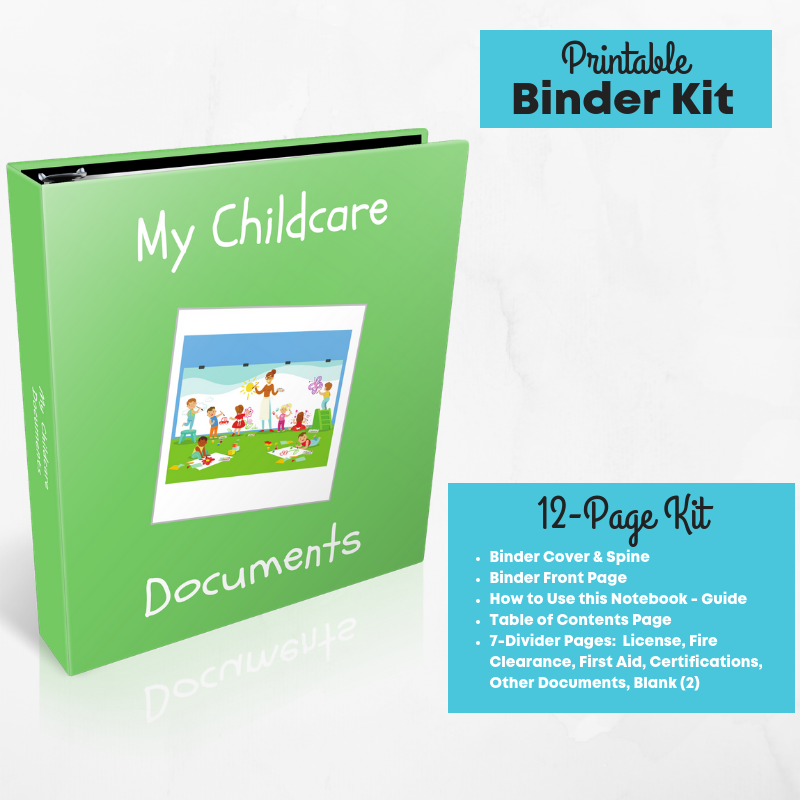
4. Visitor Log
Occasionally people other than people directly associated with the childcare such as contractors, workers, etc. need to come into the childcare.
Again, although it may not be a requirement, it is a good practice to document these visits with the use of a visitor’s log.
Visitor means anyone who is not a daycare child, staff person, caregiver, volunteer, household member, employee, parent of a child in care, or a person authorized to pick up or drop off a child to the daycare program.
The use of a visitor log can actually protect your childcare business by providing documentation of who, why, and when a person was at the childcare.
Here is a Childcare Visitor Log form template you can use.

5. A Bad Fit
Our fifth and final way to protect your childcare business may not seem like an obvious one. Nevertheless, recognizing a bad fit can help a provider sidestep possible problems in the future.
Many times it can be apparent right at the beginning, either during a tour or the first few days & weeks of enrollment, that a family or child is just not a good fit for your childcare.
Red flags could include parents not wanting to sign a contract, providing needed supplies, or not adhering to childcare policies.
For affordable legal services call 870.300.2121
Determine if a new client is a bad fit – ASAP!
It would be wise for the provider to pay close attention to these early signs of noncompliance to determine if a new client is a bad fit and possibly consider excusing them from the program.
Too many times I have heard from providers that they knew a client was a bad fit early on. But because of low enrollment, they retained the client when they should have let them go.
Sometimes these parents have either gone on to falsely accuse the provider or even intimidate and blackmail the provider when they didn’t get their way.
It would be best to have a process of evaluating whether a client is a good or bad fit to protect your childcare business.
Related Reading:
Five ways to protect your childcare business
In this post we reviewed these five simple ways to protect your childcare business:
- Obtaining liability insurance
- Removing hazards
- Use of a Daily Health Check
- Having a Visitor Log
- Being cautious of a bad fit
Consider adding ways to protect your childcare business. In the long run, it very well could be a saving grace.
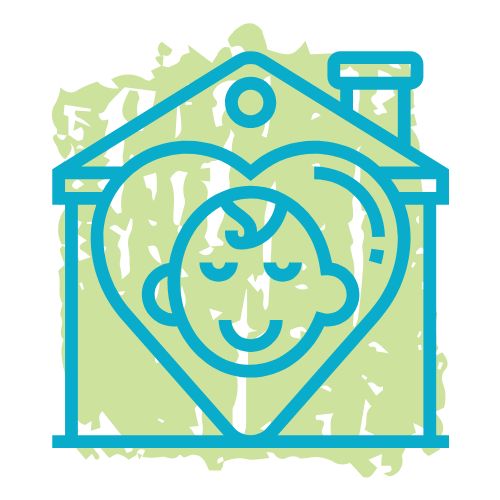
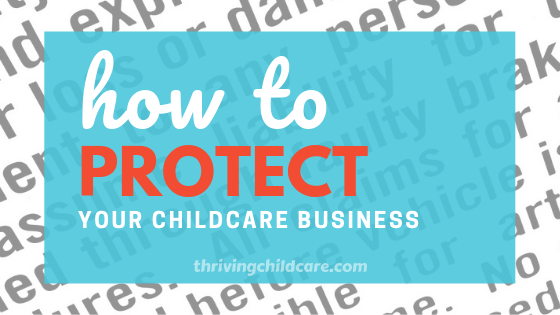
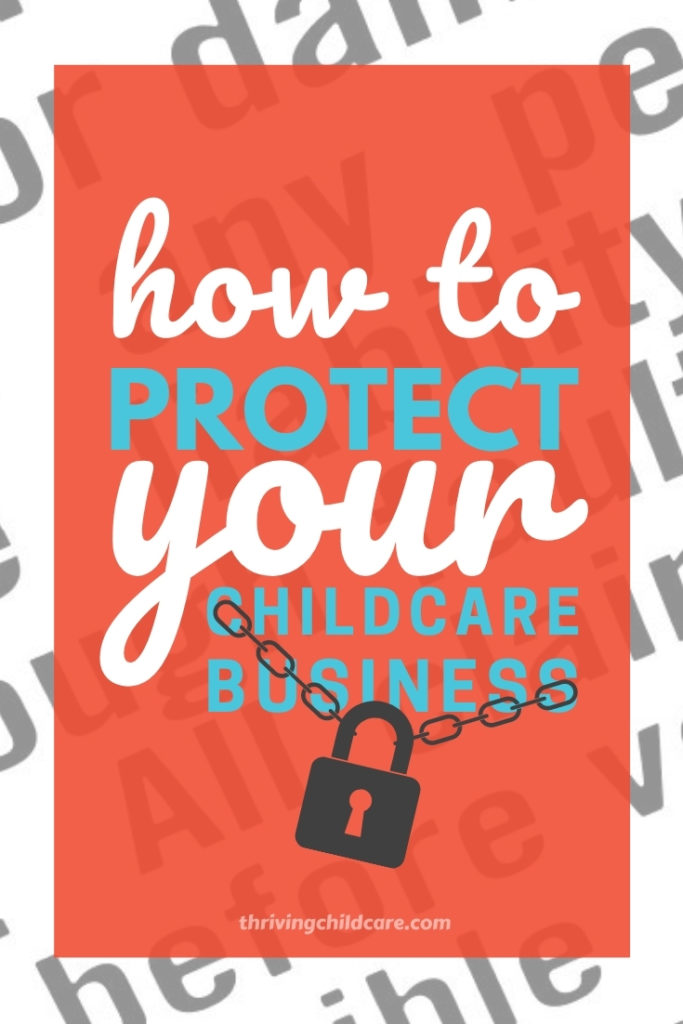

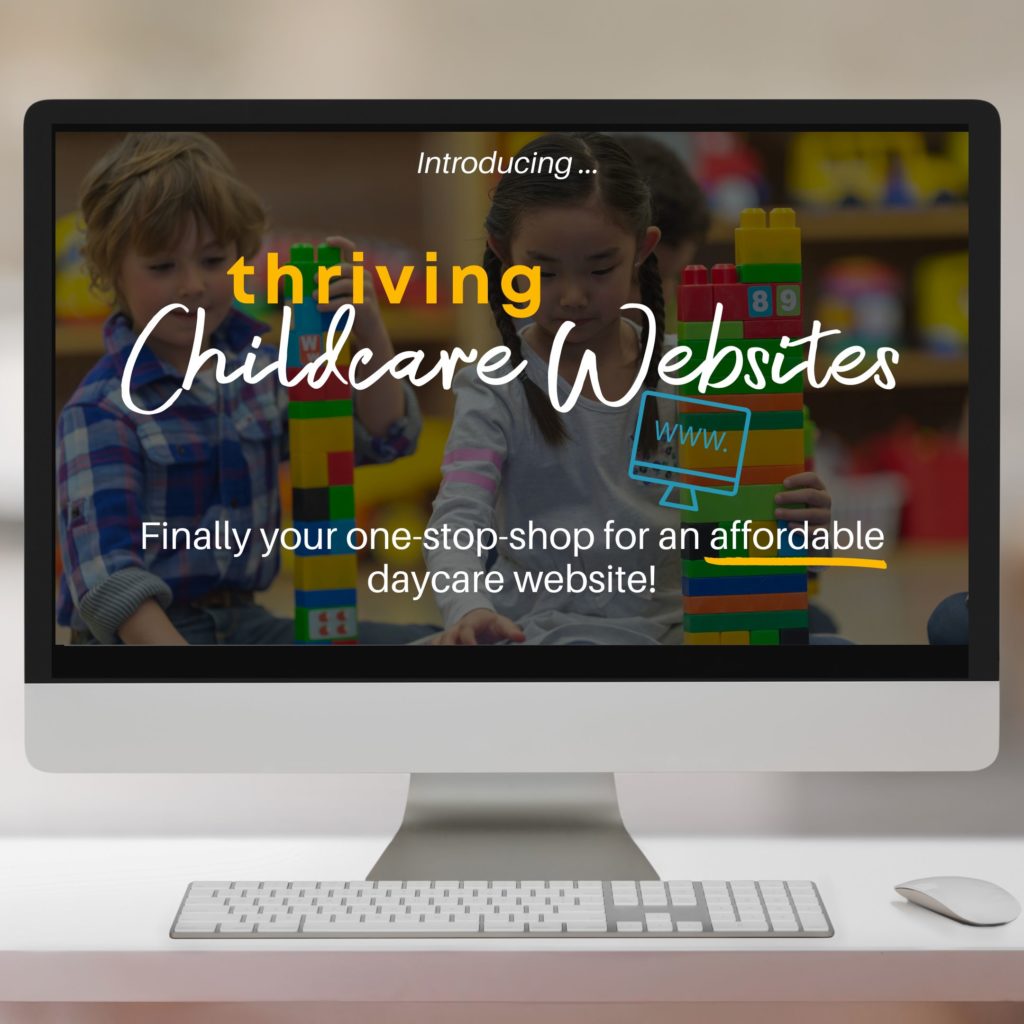

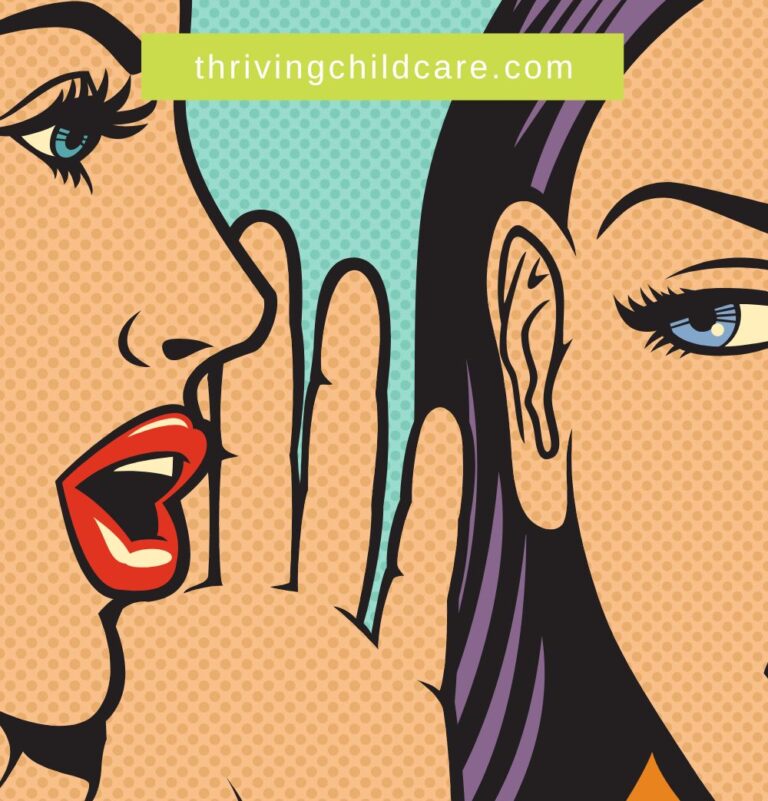

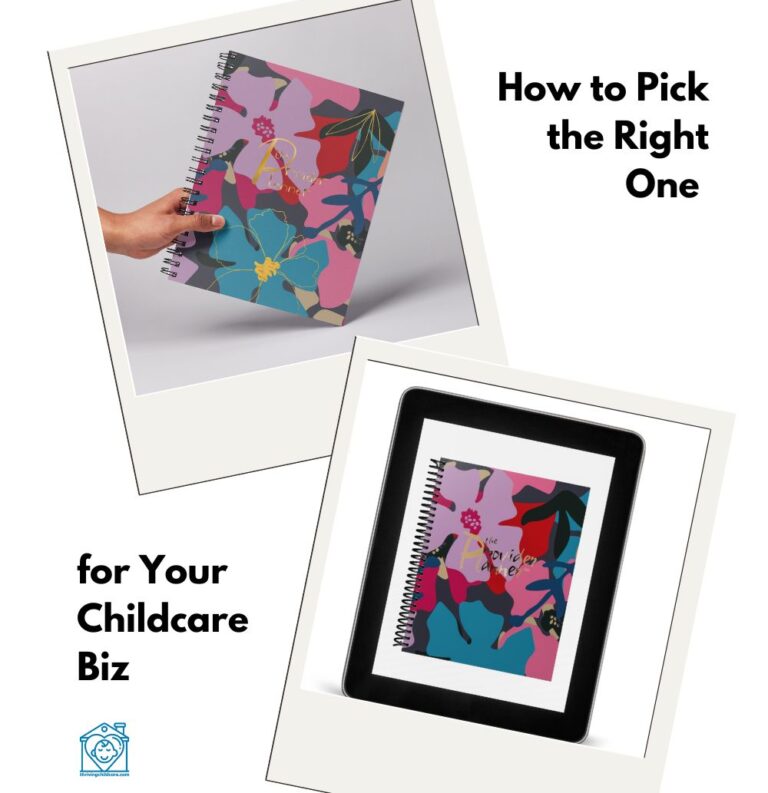





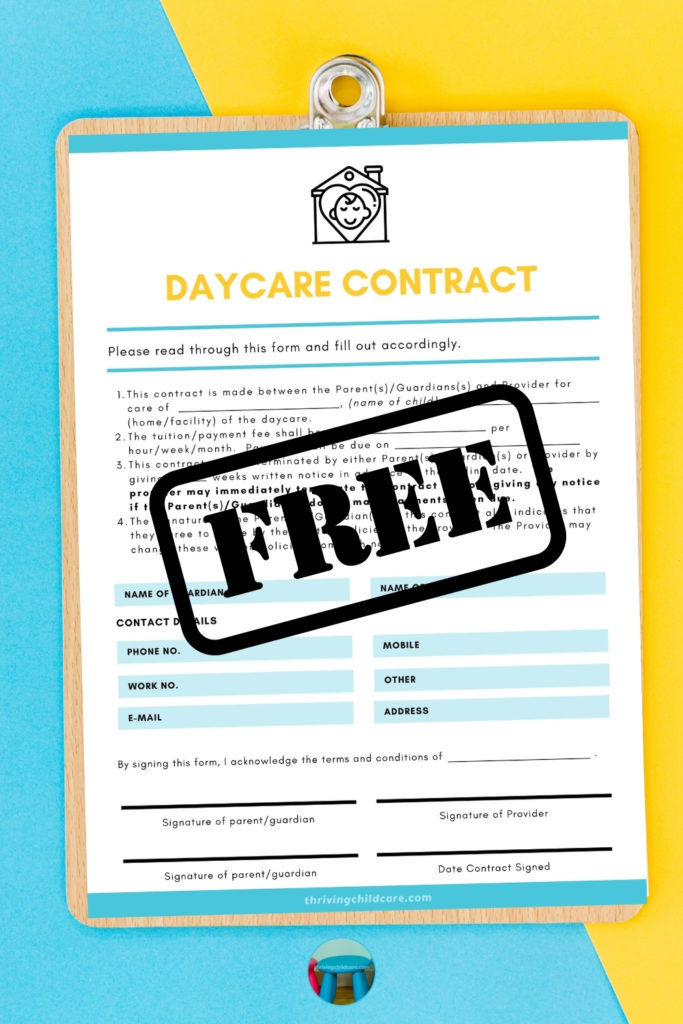
8 Responses
Excellent ideas!!
Love the poster and templates!
Thank you for these wonderful tools!
this is really very nice thanks for sharing these wonderful tips to protect our Childcare. thanks again for this
Having a good policy for insurance and security is a good investment to have on a child care business. You need health plans to avoid problems.
I so agree! It is an absolute must for your business to handle the liability issues associated with running a childcare business. Thanks so much for the comment!
Hi Adrienne,
Thanks for putting together such a fantastic site!
We have a question about terminating clients. Are there any rules that need to be followed regarding ‘just cause’ for client termination? We have a problem with a client and want to know what steps to take to protect ourselves against a discrimination lawsuit for instance. Any resources you could point to would be greatly appreciated. Thanks!
Oh, I am sorry to hear that Adam. Having to let go of a client that you probably worked hard to get can be hard. But you are so right, sometimes it’s what needs to be done. Check out this article by Tom Copeland, he’s a guru in all things about running your childcare – https://tomcopelandblog.com/how-to-end-a-parent-contract. Here he gives a great rundown on the best way to wave goodbye to a problematic client. Thanks for reading and I’m glad you are enjoying the website.
Another suggestion is to communicate with Licensing whenever there is a disgruntled parent, neighbor or other unusual incident. (Accidents, even minor ones, may be required to be reported.) Sometimes an unfounded complaint is made to Licensing when a relationship goes south.
I ABSOLUTELY AGREE! I hear that from many providers where parents have made complaints to licensing when there was actually a tuition dispute. The parent was simply trying to retaliate. This is another reason to have relationships with other local providers so that you can give each other a heads up on problem clients. Thanks so much for your comment Dawn!